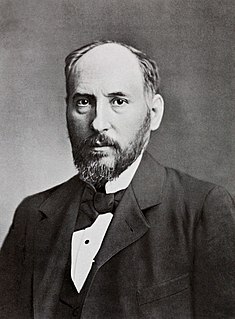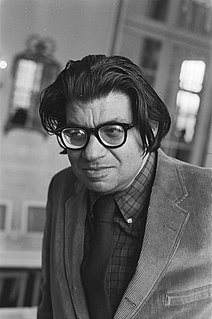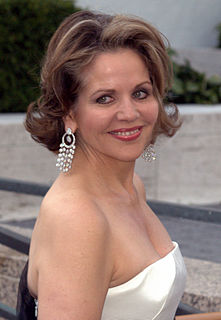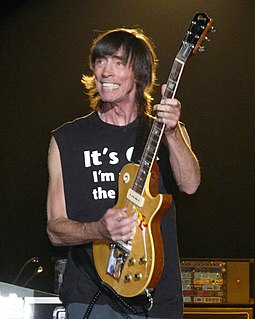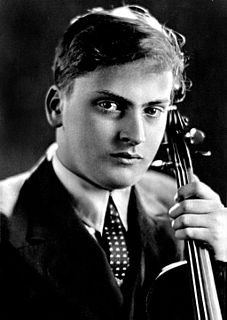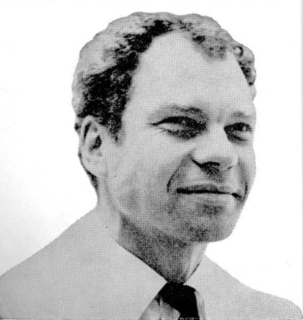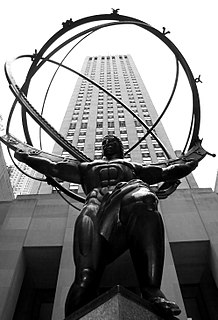A Quote by Daniel Levitin
Music can be thought of as a type of perceptual illusion in which our brain imposes structure and order on a sequence of sounds. Just how this structure leads us to experience emotional reactions is part of the mystery of music.
Related Quotes
It appears to me that the subject of music, from Machaut to Boulez, has always been its construction. Melodies of 12-tone rows just don't happen. They must be constructed....To demonstrate any formal idea in music, whether structure or stricture, is a matter of construction, in which the methodology is the controlling metaphor of the composition...Only by 'unfixing' the elements traditionally used to construct a piece of music could the sounds exist in themselves--not as symbols, or memories which were memories of other music to begin with.
When we experience a film, we consciously prime ourselves for illusion. Putting aside will and intellect, we make way for it in our imagination. The sequence of pictures plays directly on our feelings. Music works in the same fashion; I would say that there is no art form that has so much in common with film as music. Both affect our emotions directly, not via the intellect. And film is mainly rhythm; it is inhalation and exhalation in continuous sequence.
Your brain has a music room, and evolution would not have gone to the trouble of designing that if it didn't have some benefits. So, that suggests to me that we and our ancestors have had music as a central part of our experience for eons. And we're just beginning to understand how that might be. I think that's fascinating.
There is a sequence of events in our lives and so there's a temporal aspect to our experience that brings by itself, sense into the story. In other words, you were not walking before you were born and you were not doing X and Y before you did something else first. So there's a sequencing of events that imposes a certain structure to the story.
Each part of the mind sees only a little of what happens in some others, and that little is swiftly refined, reformulated and "represented." We like to believe that these fragments have meanings in themselves - apart from the great webs of structure from which they emerge - and indeed this illusion is valuable to us qua thinkers - but not to us as psychologists - because it leads us to think that expressible knowledge is the first thing to study.
Technology has altered the way music sounds, how it’s composed and how we experience it. It has also flooded the world with music. The world is awash with (mostly) recorded sounds. We used to have to pay for music or make it ourselves; playing, hearing and experiencing it was exceptional, a rare and special experience. Now hearing it is ubiquitous, and silence is the rarity that we pay for and savor.
The pace at which science has progressed has been too fast for human behaviour to adapt to it. As I said we are still apes. A part of our brain is still a paleo-brain and many of the reactions come from our fight or flight instinct. As long as this part of the brain can take over control the rational part of the brain (we will face these problems).
I've been making films with almost no dialogue (laughs), so sound and music become a very powerful character to tell the story. It's almost like with sound and music and images, it's your tool to tell the story, especially when I decide to structure the film in a way that usually goes against the conventions of the three-act structure which most films are made out of.

